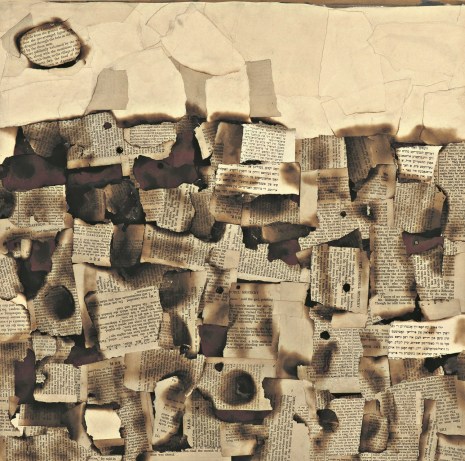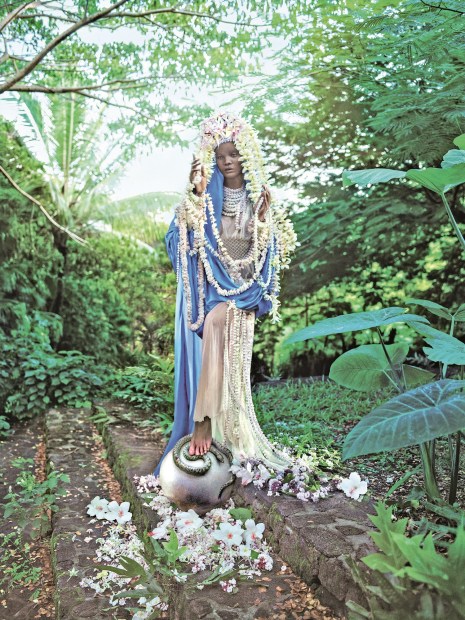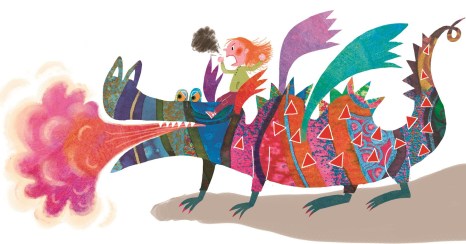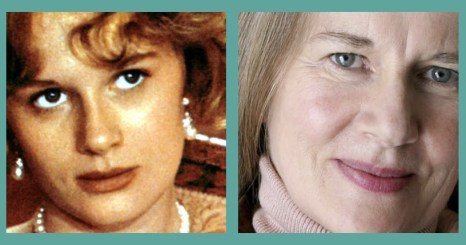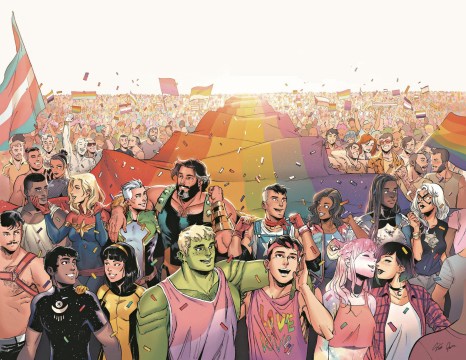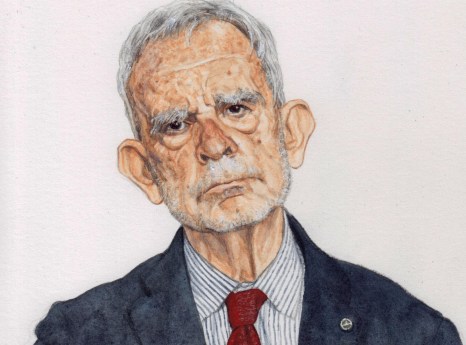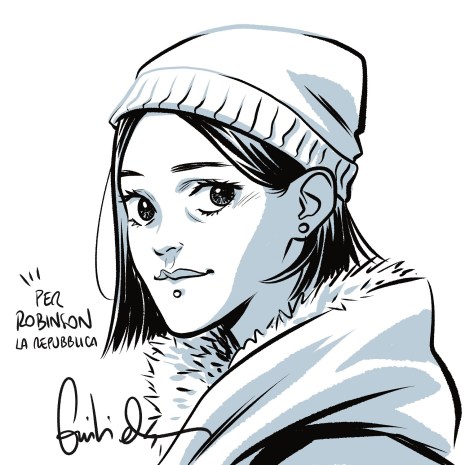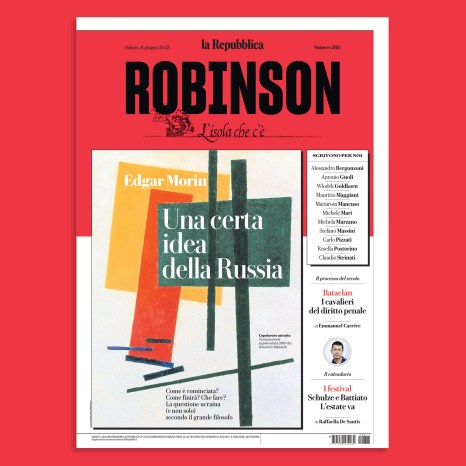Edgar Morin. A certain idea of Russia
|
The need to regenerate Europe is the message that, on the occasion of its 100th anniversary, a few months ago, Edgar Morin wanted to launch on Robinson. The French philosopher and sociologist is back on the cover of our supplement, on newsstands today with Republic, to analyze the geopolitical crisis caused by the Russian attack on Ukraine. His gaze turns back, first to the history of the Russian Empire and then the Soviet Union, up to the Putinian autocracy. Then he immerses himself in the current chessboard, suggesting that the possibility of peace can lie precisely in the awareness of a shared European destiny. Because every day of this war, Morin warns, is a day in which we neglect the other threats to the planet: the ecological catastrophe and the weakness of democracies.
In the following pages, as always, you will find the chronicle of the trial for the Bataclan massacre signed by Emmanuel Carrère, the reviews of the novelties in the bookstore and the space dedicated to an author to be rediscovered: Rosella Postorino writes about Maria Bellonci, in whose living room the Strega Award.
You can write to us at robinson@repubblica.it and follow us on our social networks: Instagram (@robinson_republish) and Twitter (@Robinson_Rep).
|
Shmuel Dresner, The Ghost Town (1982)
|
The German writer Ingo Schulze is among the protagonists of Taobuk, the Taormina review to which we dedicate the opening of the Festival pages. Schulze, interviewed by Raffaella De Santis, will present his latest novel in Sicily The righteousness of the killers. In Forlì, on the other hand, Caterina Sforza, an unconventional noblewoman and pioneer of knowledge, is celebrated: Eleonora Mazzoni, artistic director of the exhibition dedicated to her, writes for us. Finally, the Beauty Festival starts in various Venetian locations: among the appointments Simone Cristicchi’s homage to Franco Battiato, who passed away a year ago, as Cristicchi himself tells in the interview signed by Annarita Briganti. Then, as always, the reports of the cultural events of the week throughout Italy.
|
David LaChapelle, Our Lady of the Flowers (2019, Hawaii)
|
“His works, even if we have already observed, loved and hated them in magazines all over the world, maintain their effect from the first time live. Thanks, who knows, to their surprising and hyper-colored surrealism brought to the limits of what, at least in art, is allowed “. So writes Maurizio Fiorino of the retrospective at the Mudec in Milan, dedicated to the superstar photographer David LaChapelle. From Maui, the island of Hawaii where he lives, LaChapelle himself comments on the desire for spirituality that emerges from the exhibition I Believe in Miracles: “The universe is falling apart and everyone’s task is to try to put them back together, freeing us from materialism and anxiety ”. In the pages of the Art also the interview by Olga Gambari with Giorgio Griffa, master of painting now celebrated at the Center Pompidou in Paris.
|
A table by Sophie Fatus for The 10 secrets of happiness by Alberto Pellai (ed. La Coccinella)
|
The game, for children, is a damn serious matter: it is the thesis that Alberto Pellai, doctor and psychotherapist, develops in an article written for our pages dedicated to girls and boys. The occasion is the release of his interactive book, published by La Coccinella, in which, through dialogue windows and playful moments, he tries to teach the little ones self-esteem, serenity and sharing. Moving on to a higher age group, this week Ilaria Zaffino signals the arrival in Italy of Soul Riders, ecological fantasy for women based on a famous video game. Also explaining why the “marriage” between the two worlds, that of fiction and that of videogames, is often happy.
|
From left: Dominique Sanda in Family group in an interior (1974) by Luchino Visconti and in a recent image
|
He has lived in Uruguay for twenty years. Now Dominque Sanda, star of mythical films, from Twentieth century by Bertolucci a The garden of the Finzi-Contini by De Sica, back in an Italian film: The peacock’s paradise by Laura Bispuri, in the hall from 14 June. To Arianna Finos, who interviewed her, the French actress, now 71, explains her role in this family comedy between secrets and lies, and remembers actors and directors of an extraordinary career. She saying, “Thinking about them gives me happiness. They made me what I am today, with their work and their friendship ”.
|
Jacopo Camagni’s illustration represents the Marvel “multiverse” parading for Pride
|
Courage is usually told about superheroes. Recently, even coming out. For decades, the stalwart avengers in cloaks and masks have feared they are gay. And, beyond metaphor, the authors of those comics, who were forbidden to talk about other ways of loving. More or less until the nineties. Today is another story, even the heroes have gone queer: some historical, like the Ice Man or Harley Quinn and Wonder Woman, others newer, like the couple of Hulkling and Wiccan, or the children of Superman and Wolverine. While two volumes dedicated to Marvel and DC Pride are being released, we retrace the history of this change of course with Marco Lupoi, editorial director of Panini Comics. The interview is by Gabriele Di Donfrancesco.
|
Luca Serianni in a drawing by Riccardo Mannelli
|
For Speaking, Antonio Gnoli interviews Luca Serianni, one of the leading scholars of the Italian language and its history. A love born in a lonely youth, alongside an anxious father who shielded him from life. As an adult, the academy and teaching were experienced as an identity mission and as the realization of a passion. A passion that is an invitation to see Italian as a family in which to find refuge.
|
A table created for us by the cartoonist Giulio Macaione
|
On Robinson this week Giorgio Dell’Arti interviews Giulio Macaione, who with his Sirocco won the literary tournament dedicated to Italian graphic novels. Chosen by our judges from over two hundred competitors, Macaione is the author of a partly autobiographical story, which helped him to mourn for a very dear person. And here Macaione confesses: “I’ve been drawing since I was a child. I am happy, I ask nothing more from life ”.
|
“A long line of trucks, manned at four corners by expressionless security guards armed with machine guns, proceeded slowly. Inside the trucks, piled one on top of the other, were crouched little yellow-skinned men in old greenish uniforms ”. In 1984 by George Orwell the spectacle of prisoners of an endless war, of which people know little and care even less, has now become banal and boring. “In the beginning there had been a few buu and a couple of boos, but they came from party members scattered in the crowd, and they quickly died down. What prevailed, however, was a feeling of simple curiosity. Foreigners, whether they came from Eurasia or from Estasia, were like exotic animals. We saw them only and exclusively in the guise of prisoners, and even as prisoners we could only give them a fleeting glance ”. In the dystopian novel, the echo of that distant and now eternal war serves above all to reinforce a very close power, that of Big Brother. In the reality we live in, perhaps, who knows.
|
|
